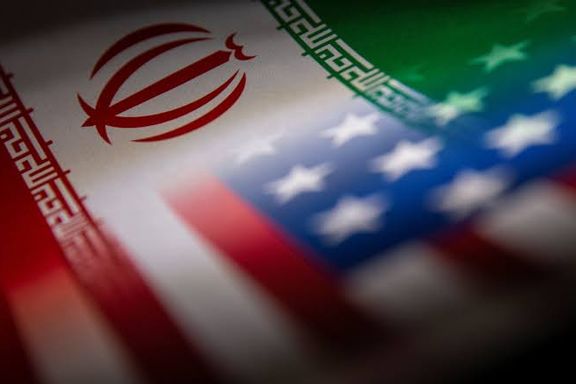US Avoids A Direct Response To Reports Of Secret Iran Talks

The US State Department Wednesday dismissed media reports about secret talks with Iran for a possible nuclear deal, calling them rumors.

The US State Department Wednesday dismissed media reports about secret talks with Iran for a possible nuclear deal, calling them rumors.
Principal deputy spokesperson Vedant Patel in response to a question about a Haaretz report saying talks have made progress said, “I’m certainly not going to respond to rumors or leaks of diplomatic conversations, which of course have a tendency to be false and misleading.”
In recent weeks the State Department has used the same exact formulation to characterize many media reports about some sort of indirect negotiations with Tehran, whether on the nuclear issue or securing the release of American hostages.
Haaretz reported Wednesday that Israel believes secret talks are taking place possibly to reach a limited or partial deal, whereby Iran would reduce the level of its uranium enrichment in exchange for the release of around $20 billion of its funds frozen in Iraq, South Korea and its share of withdrawal from the International Monetary Fund.

The chief of Iran’s central bank was visiting the IMF in Washington last week and Iranian media quoted him as saying that Tehran could withdraw around $6 billion of its contributions.
If true, $20 billion seems like a big amount, but in reality, it will help the Islamic Republic for a few months amid its economic crisis and is not a fundamental solution to its domestic instability.
However, already the battered Iranian currency, the rial, has begun to rise in the Tehran foreign currency market, possibly driven by anticipation of a diplomatic breakthrough. The US dollar fell below 500,000 rials late on Wednesday for the first time since March 28. It has risen by more than 10 percent in recent weeks.
Spokesperson Patel also repeated the same public policy formulations that the Biden administration has been using on the Iran topic - the US will not allow Iran to gain nuclear weapons, but it believes the best way to achieve that goal is through diplomacy.
However, Israel strongly opposes any partial deal with Iran that does not fundamentally remove the danger of Iran building nuclear weapons. Prime Minister Benjamin Netanyahu once again warned on June 4 that Israel is preparing for a multi-front conflict if it decides to attack Iran’s nuclear installations.
“The latest statements are probably a response to an American effort to reach some sort of an agreement with Iran,” Maj, Gen. Yaakov Amidror, senior fellow at the Jerusalem Institute for Strategy and Security and former national security adviser to Netanyahu, was quoted as saying this week.
“The Israeli statements are also aimed at Iranian ears, that should they cross a certain line, Israel will respond, and does not see itself committed to any international agreements reached with Iran,” he added.
Iranian officials have repeatedly claimed in recent months that indirect contacts with Washington continue to rekindle nuclear talks that were suspended last September after 18 months of unfruitful diplomacy. The Biden administration long denied any talks, even calling Iranian officials liars at one point. But media hints about a partial deal being discussed have surfaced since February.
Tehran’s release of three Western hostages last week, and lack of a Western attempt to table a resolution against Iran this week at the board meeting of the UN’s International Atomic Energy Agency, could be signs of secret dealings.